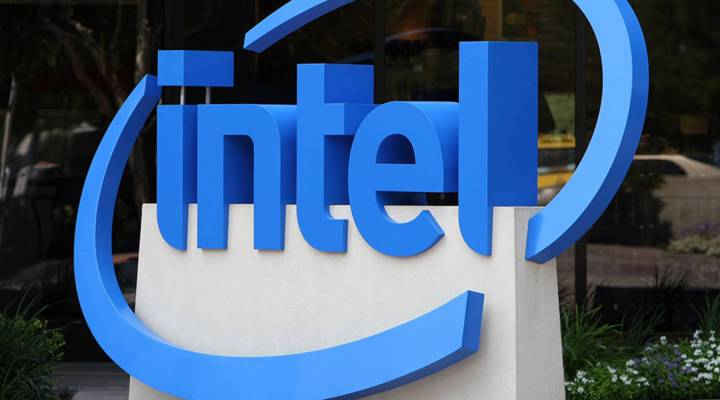
Diverse startups could get traction from chip giant Intel
Diverse startups could get traction from chip giant Intel

Intel Capital is the venture capital arm of the chip giant Intel. It’s invested over $12 billion since it was started in 1991. Lately, it’s focused on big data, artificial intelligence, robotics and diversity. In 2015, it announced the $125 million Intel Capital Diversity Fund, which is to be invested in female and minority startup founders. Two and a half years later, after they’d invested all that money, the Diversity Fund became the Diversity Initiative with a broader definition of diversity. Marketplace Tech host Molly Wood spoke with Christine Herron, one of the leaders of the fund, about its evolution. The following is an edited transcript of their conversation.
Christine Herron: What ended up happening was turning around and saying, “Hey, this isn’t like a fund where we have to pace it out and it is a very specific allocation and everything needs to go inside the box of a fund; it’s rather a baseline for the investment amount we want to make sure we deploy into this community or a set of communities, really. And so, when you look at it that way, you say, “OK, so that’s kind of the minimum bar we want to cross over, is this 125 over five years.” There’s no reason a greater percentage couldn’t be diverse. I mean, what are you going to do? Say, “I’m sorry, we’ve already invested in enough women this year, you’ll have to come back next year.” That’s not going to happen. And now we’re saying, “OK we’re not setting up new fund structures, but we do have a very ongoing diversity initiative, which is now no longer just women and underrepresented minorities, but also U.S. military veterans, people with disabilities and LGBTQ entrepreneurs.”
Molly Wood: Is it easier for a corporate fund to launch a diversity initiative because you don’t have to fund raise? So is it easier for an Intel Capital or even a Google Ventures to move in this direction?
Herron: I would say so, because anytime you go out to fund raise, you do have to go pitch why that’s something that makes sense. And as of now, most endowments and other types of limited partnerships have not set their own mandates. There are very few large LPs that have a mandate. You do find family offices with mandates, [but] they tend to be smaller checks. They’re not going to be the $10 million check or the $20 million check. So I think on the corporate side, what you do need to look for is long-term commitment, and that can be harder.
Wood: So if you are at the point where you burn through all your money — it’s 22 percent of your investing now — do you see a future in which all of Intel Capital’s investing is just de facto diversity investing?
Herron: Well, I don’t want to shut out the usual suspects. So I certainly wouldn’t want to say, “I’m sorry, you only have white men on your team. You cannot receive money.” We’re never going to do that. But that being said, I can completely see a world where a large percentage — let’s call it 70 percent — of our investing was diverse, because that would be mapping much more closely to half the people are women. OK, so that’s 50 percent diversity investing right there. We don’t set specific targets, neither for our hiring nor for our investing. We don’t say, “Oh, we have to hit 20 percent or 18 percent” or whatever it is, but we do track it just as a barometer of “how are we doing?” You know, let’s look in the mirror every so often.
Wood: And then, finally, what made you want to run this?
Herron: Well, it’s interesting, I come from a very early stage investing background. That’s where I think I’m most helpful to someone. And so, what was fun about diversity for me is, one, I’ve been a diverse entrepreneur. I’ve been groped when I’ve gone out to raise money. There’s this great Harvard research about prevention questions that women get in a pitch versus promotion questions that men get — go look it up if you haven’t read it. And so the opportunity to have that direct impact, and since the most impact can also be had very early, you know, the younger the company, the more impact you can have in helping its culture, and if it’s a diverse company to start with, [it’s] much easier to stay diverse then [if] you have 20 men and you go to interview the first woman, she doesn’t necessarily feel the same as if it was founded by a diverse team and it’s had women being added along the way. So that opportunity for early impact was just, you know, how could you pass that up?
There’s a lot happening in the world. Through it all, Marketplace is here for you.
You rely on Marketplace to break down the world’s events and tell you how it affects you in a fact-based, approachable way. We rely on your financial support to keep making that possible.
Your donation today powers the independent journalism that you rely on. For just $5/month, you can help sustain Marketplace so we can keep reporting on the things that matter to you.












